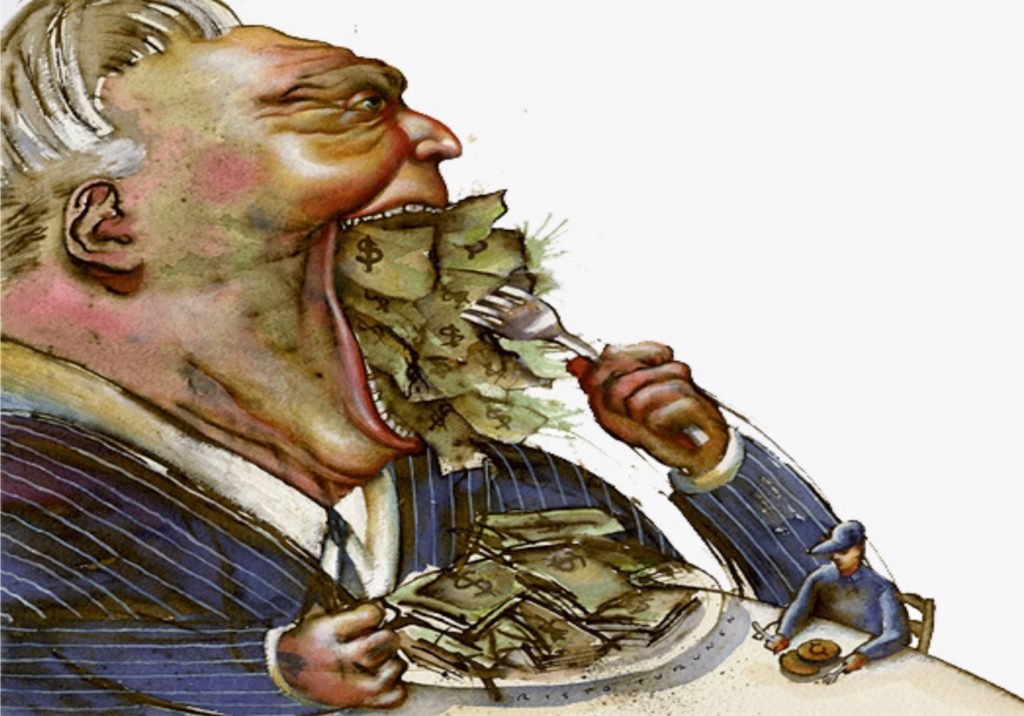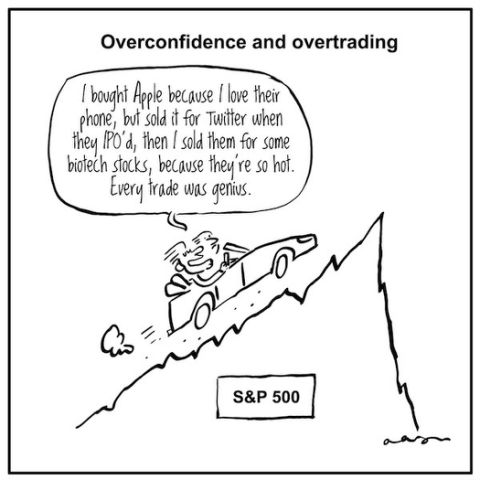Girighet, av individer eller av företag, är aldrig, någonsin bra för aktieägarna. Det kan erbjuda vissa kortsiktiga vinster i aktiekurserna men det kommer oundvikligen att hamna i katastrof.
Här är ett enkelt tips: de flesta företag har idag ett visst uppdrag som förklarar vad de står för.

Om det talar om spetskompetens, om att ge samhällets fördelar och en kultur som stöder personal, kan företaget vara värt att undersöka ytterligare. Om det bara talar om ekonomiska mål och maximerar aktieägarens värde fokusera på ett annat bolag.
När vi tittar på våra verkligt framgångsrika affärsmän i vår tid, personer som har skapat verkligt aktieägarvärde och berikat sig själva och deras följare i förvånande grad, finner vi en extraordinär sak. De allra flesta av dessa människor är inte särskilt intresserade av pengar och deras företag är i allmänhet inte dedikerade till någon fokus om aktieägares värdemaximering. T.ex Amazon, Berkshirehathaway
Girigheten är inte en kvalitet som verkar driva världens största skapare av aktieägarvärde och att skapa aktieägarvärde är inte målet för de företag som är bäst på det.
Företags girighet är dåligt för vanliga aktieägare.
Related Posts
- 76Warren Buffett has been incredibly successful, and he's extremely wealthy. Warren Buffett's wealth jumped by around $12.7 billion in 2013 alone. But how much is $12.7 billion anyway? And how good an investor is Warren Buffett really? We've put together some facts that really put him in perspective. Read more: http://www.businessinsider.com/mindblowing-facts-warren-buffett-2014-8?op=1#ixzz3BZbB6BSz
- 72One of the original five Harvard students who helped build the largest social network in the world walks into a gastropub just a few blocks away from the dorm room where it all began. The handful of students and staff who have returned to campus on this bitterly cold January…
- 72Bonds have never been an attractive type of Investment. People consider them boring, conservative, with the least potentiality and the maximum uncertainty of the risk of losing money. Bill Gross, the co-founder of PIMCO (Pacific Investment Management Co.) managed to win the fear of the Bond market. He took his…
- 71Have you ever wondered what the secret to Warren Buffett's success is? It turns out Charlie Munger -- Buffett's right-hand man at Berkshire Hathaway -- is happy to share. he remarkable success Much has been said from outsiders -- like myself -- about Buffett and the various things…
- 61Virtu Financial, a US electronic market maker, is poised for a stock marketlisting this month in a move that will test investors' attitude to the controversialpractice of high-frequency trading. Its success or otherwise will help decide if some asset managers and long-terminvestors - who are often cited as the victims…

